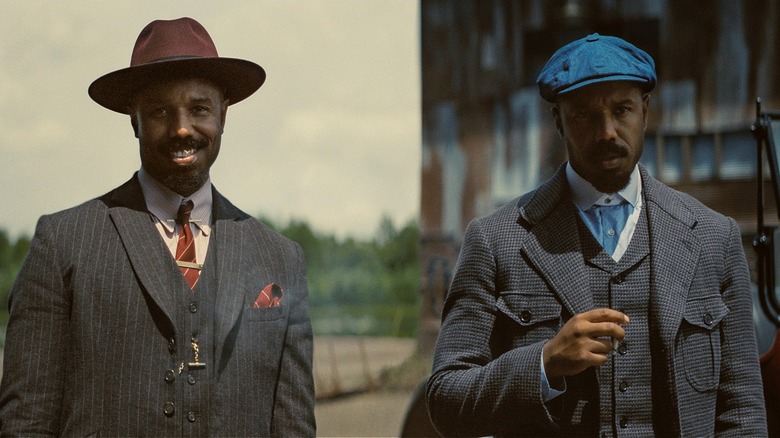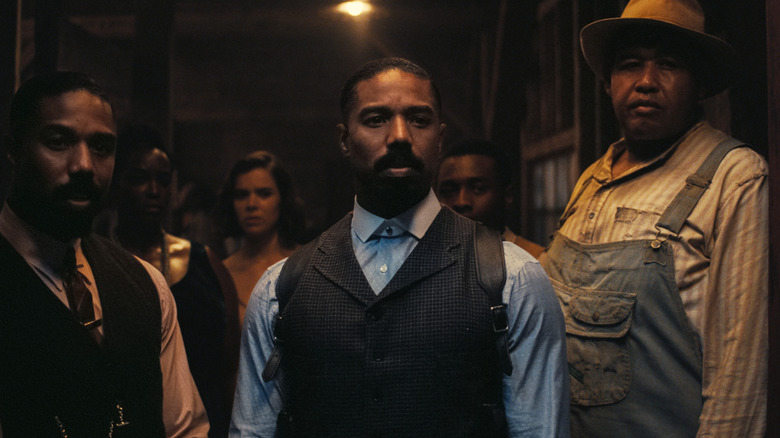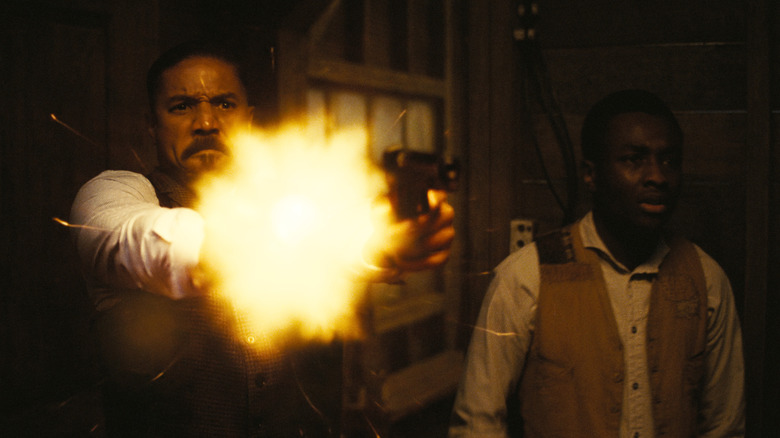Sinners Review: Ryan Coogler's Most Ambitious Movie Yet Hits More Than It Misses
- Sumptuous and immersive visuals
- A diverse and entertaining ensemble
- Suspense and horror well balanced against the drama …
- … but not so much the action
- Tries to be too many different films at once
- Pacing struggles
- The experimental use of music is one big swing too many
In a recent interview conducted by NBA living legend LeBron James, director Ryan Coogler called his new film "Sinners" his most personal yet, despite looking on the surface like a big, crowd-pleasing popcorn flick. His first movie, "Fruitvale Station," was based on a tragic true story. His second and third were the product of existing IP, with "Creed" continuing the world of "Rocky" and "Black Panther" carving new ground within the MCU. But this new project is a Coogler original, and audiences' first chance to see what a "Ryan Coogler" movie can really be when he's not functionally working for hire.
So, what is "Sinners?" It's kind of a 1930s gangster picture. It's sort of like a Western. It's also a horror film. It might, given the passage of time and an absence of recency bias, be considered one of the best vampire movies of all time. And it is, of course, a big, crowd-pleasing popcorn flick. Even so, there's a lot under the hood thematically that proves a filmmaker can still work within the strictures of the modern studio system to tell meaningful, impactful stories without having to sell their soul to do so.
The film is a gargantuan undertaking and its heights will reverberate through pop culture for the foreseeable future. But some of its bigger swings don't quite connect and suggest that it is possible for a movie to try to be too many things at once.
Who are these Sinners anyway?
In "Sinners," frequent Ryan Coogler collaborator Michael B. Jordan stars as twin hustlers Smoke and Stack, a charming pair who feel like the multi-talented star put Jimmy and Jey Uso from the WWE into a blender with an old VHS copy of "Harlem Nights." These two Mississippi-born veterans return to their home after fighting abroad for the country and performing the perfect heist in Al Capone-run Chicago to open a juke joint, and try to carve out their own space in this world. Buying a plot of land and an old mill, filling it with booze, fried fish, and blues music may sound like the low-hanging fruit of entrepreneurial endeavors, but it's clear to these two men, and the ragtag group of collaborators they assemble to bring it to life, that this represents something deeper.
They enlist the help of their younger cousin Sammie (Miles Caton), a blues guitarist who idolizes them and longs to leave the Delta behind for a life devoted to music. But they caution him that while Chicago may be technically miles away from the Jim Crow South, that it's the same division and restrictions — just with taller buildings.
The film is bifurcated between day and night over the course of 24 hours, with the brothers splitting up to organize old friends for their grand opening while there's still daylight. But once night falls and the old mill fills with new customers, the unsettling evil lurking at their periphery through the first act makes itself known, and everything goes very, hideously, horridly wrong. Without getting heavily into spoilers, the film seems inspired by works as diverse as the Quentin Tarantino penned "From Dusk Til Dawn," John Carpenter's "The Thing," and a litany of other early 20th century crime flicks and cowboy pictures.
While the film shifts seamlessly from its differing tones, the genres themselves don't always gel together as well as one might hope. When the film slows down — as it does, repeatedly — the quieter scenes of drama, like Smoke and his ex Annie (Wunmi Mosaku) reminiscing over their lost child, prove moving and engrossing. In the intermittent foreshadowing and punctuation marks in stinging stabs of jump scares and lingering suspense, it's as tense and unsettling as any modern horror effort.
Yet by the time we arrive at the proverbial fireworks factory, and Coogler's reliable action chops kick in, even Jordan utilizing the fight skills we've come to love from the "Creed" films can't quite save the sense that "Sinners" has bitten off more than it can chew. The high points hit and the audience will pop when called to, but it feels off.
The emancipation of Ryan Coogler
When looking at the sheer number of influences and genres at play for this film and seeing Quentin Tarantino's work among them, the picture's key sticking point becomes more evident. Filmed with a mixture of large format camera systems and employing shifting aspect ratios, Ryan Coogler, as a director, has said he took a lot of guidance from Christopher Nolan. That attention to detail with the visuals and the care taken with the size and scale of the images help make the film so instantly iconic. But perhaps Coogler, the screenwriter, could have taken notes from Tarantino and the way he has reliably blended a variety of genres together so seamlessly within his own milieu. Every filmmaker is essentially a spirited assemblage of his inspirations and what he grew up watching, but Tarantino has succeeded in making his particular brand of mash-up culture auteurism a unique thing of its own.
Because it's the first time seeing Coogler attempting the same sort of stew, he's still finding himself. As he grows more assured, his unique perspective itself will be enough glue to hold the disparate elements together. But instead, here he relies heavily on music as the bonding element, as a sort of homage to his late uncle's love for the blues. At times, it is so fitting as to be the perfect complement to the pop culture gumbo he's cooking. But in the film's back half, he makes several big risks with the music element of the narrative and the results are so mixed as to detract from everything else around it that does work.
It's hard to fault a director this gifted for his ambition when he's so clearly shedding the detritus of more corporate studio filmmaking and building something for himself for the first time. It's striking how this is a film that has three different sex scenes in a landscape where eroticism is exiled to the arthouse, yet it still feels strangely tame in those moments; a sad reminder that you're watching a hard-R rated film made by a PG-13 mind. That said, it still feels like the beginning of something new.
Despite "Black Panther" being one of the rare monoculture moments of the last decade, while in the thick of things, Ryan Coogler didn't think he would survive the intensity of making it. Yet unlike filmmakers like Jon Watts and the Russo Brothers, we now have proof, however flawed, that someone can come out the other side of that machine with their wits and personality intact. Judged against the hype and anticipation, its conceivable for "Sinners" to fall short for some viewers. But set it on a desk next to "Wolfs" or "Cherry," and suddenly it feels like proof of an afterlife that makes the fear of death fade into a wisp of smoke. "Sinners" is an achievement and a thrill to behold so yes, it deserves a pass on some of its weirder choices that don't quite land.
"Sinners" hits theaters on April 18.


